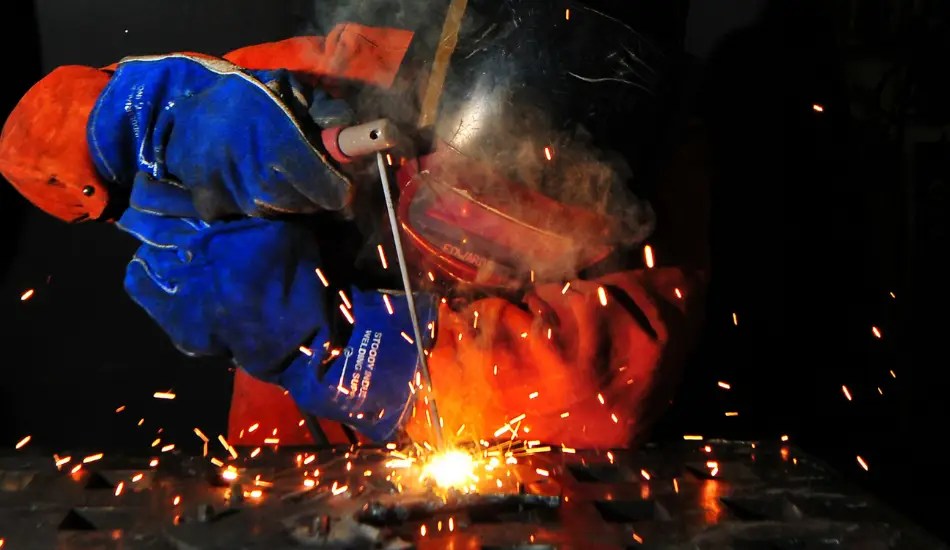In the highly competitive industrial environment of today, accuracy, productivity, and cost-effectiveness are essential for success. Owners of fabrication shops, production managers, and manufacturing engineers are always looking for cutting-edge welding solutions that may boost output without sacrificing quality. A game-changing technology, automatic laser welders provide unmatched speed, precision, and consistency. Is this technology, however, a wise investment for your company? Its advantages, uses, and comparison to conventional welding techniques will be discussed.

What Is an Automatic Laser Welder?
An automated laser welder is a high-precision welding device that joins metal parts using a focused laser beam. Laser welding produces precise, robust, and clean welds with no thermal distortion, in contrast to conventional welding methods that depend on electrodes or filler materials. These devices are perfect for high-volume manufacturing lines since they are made to function with little assistance from humans.
Key Benefits of Automatic Laser Welding:
Unmatched Precision and Quality:
Errors and rework are decreased by the precision provided by automatic laser welders. They are ideal for sectors that need premium joins, such as aerospace, medical devices, and automotive manufacturing, because of their capacity to produce deep, thin welds that guarantee exceptional strength.
Increased Production Efficiency:
Welding speeds up considerably with automation as opposed to manual or semi-automated procedures. Companies can improve processes, eliminate bottlenecks, and increase manufacturing volume while preserving consistent quality.
Minimal Heat-Affected Zone (HAZ):
Excessive heat can lead to material deformation or weakening, making it one of the most frequent problems with classical welding. Automatic laser welders maintain the integrity of the base material by producing a highly focused heat source that results in a limited heat-affected zone.
Reduced Labor Costs:
Automatic laser welding lessens reliance on manual labor as expert welders become harder to locate. By controlling several machines at once, operators may reduce labor costs overall while preserving accuracy and productivity.
Versatility across Various Materials:
These extremely versatile devices are capable of welding a variety of materials, such as alloys of nickel, titanium, stainless steel, and aluminum. They are a great asset for many different businesses because of their versatility.
Applications of Automatic Laser Welders:
Numerous industries make extensive use of automatic laser welding. Here are a few of the most important uses:
- Automotive Industry: Used to weld complex metal parts, battery modules, and automobile body panels.
- Aerospace Industry: Provides lightweight, high-strength welding for vital aircraft parts.
- Medical Devices: These allow for the accurate welding of microelectronics, implants, and surgical tools.
- Electronics Manufacturing: Used for electrical contact and semiconductor micro welding jobs.
- Metal Fabrication Shops: These facilities enable large-scale manufacturing with little labor input.
How Does It Compare to Traditional Welding Methods?
Feature | Automatic Laser Welding | Traditional Welding |
|---|---|---|
Precision | Extremely High | Moderate
|
Speed | Fast & Automated | Slower & Manual
|
Heat Distortion | Minimal | High
|
Material Suitability | Wide Range | Limited
|
Operator Skill Level | Lower Requirement | Higher Requirement
|
Production Volume | High | Moderate
|
Automatic laser welding is becoming more and more popular because of its dependability and efficiency, even if conventional welding methods like MIG and TIG welding still have a role in manufacturing.
Addressing Common Concerns:
Is It Too Expensive?
By lowering labor costs, cutting down on material waste, and improving production efficiency, an autonomous laser welder offers a substantial return on investment (ROI) despite its seemingly expensive initial cost. In a few years, many enterprises recoup their investment.
What about Operator Training?
Modern laser welding systems are simple to use because to their automated capabilities and user-friendly software. Numerous manufacturers provide thorough training programs to assist operators in swiftly get up to speed.
Can It Replace My Current Welding Methods?
Although they are better in many aspects, automated laser welders aren’t always the best option. It may still be required to use traditional techniques for huge, heavy-duty constructions that require deep penetration welding. However, laser welding is the obvious choice for mass manufacturing and precise components.
Final Thoughts: Is It Right for You?
If your company needs welding solutions that are fast, accurate, and economical, investing in an autonomous laser welder is a wise move. You may increase production efficiency, save operating costs, and keep your competitive edge in the market by implementing this technology.
Are you considering switching to an automated laser welder? Get in touch with Fibre Laser Welder LLC right now for professional advice, product suggestions, and a one-on-one consultation. Let’s work together to help you advance your welding operations!










